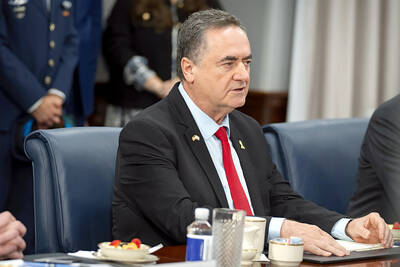The new director of the CIA held high-level talks in Pakistan after a provincial leader warned against expanding US missile strikes on al-Qaeda and Taliban targets inside the country’s thinly policed border with Afghanistan.
Leon Panetta arrived in Pakistan on Saturday on his first overseas trip since taking office as the Obama administration seeks a strategy to turn around the faltering war against Taliban militants in neighboring Afghanistan.
The US is concerned that political turmoil in Pakistan is distracting its government and army from combating Islamist insurgents threatening the stability of the nuclear-armed country and the surrounding region.
Panetta arrived from New Delhi, where Indian officials said they discussed the November terrorist attack in Mumbai, which has been blamed on a Pakistan-based militant group.
In a meeting with the CIA chief on Saturday evening, Pakistani Prime Minister Yousuf Raza Gilani stressed the need to resolve his country’s 60-year dispute with India over the divided Kashmir region so that Pakistan can “singularly focus its attention on eradicating the menaces of extremism and terrorism,” Gilani’s office said in a statement.
Panetta expressed satisfaction with bilateral cooperation and said Washington was urgently lining up more economic assistance for Pakistan, as well as equipment and training for its security forces, it said.
In a sign of US frustration at Islamabad’s failure to eradicate militant safe havens, unmanned aircraft operated by the CIA are believed to have carried out dozens of missile attacks in Pakistan’s wild tribal regions since last year.
US officials say the missile attacks have killed several senior figures in al-Qaeda, which Washington worries is plotting new Sept. 11-style attacks in the West and have significantly weakened the terror network’s organization.

STEPPING UP: Diminished US polar science presence mean opportunities for the UK and other countries, although China or Russia might also fill that gap, a researcher said The UK’s flagship polar research vessel is to head to Antarctica next week to help advance dozens of climate change-linked science projects, as Western nations spearhead studies there while the US withdraws. The RRS Sir David Attenborough, a state-of-the-art ship named after the renowned British naturalist, would aid research on everything from “hunting underwater tsunamis” to tracking glacier melt and whale populations. Operated by the British Antarctic Survey (BAS), the country’s polar research institute, the 15,000-tonne icebreaker — boasting a helipad, and various laboratories and gadgetry — is pivotal to the UK’s efforts to assess climate change’s impact there. “The saying goes

Police in China detained dozens of pastors of one of its largest underground churches over the weekend, a church spokesperson and relatives said, in the biggest crackdown on Christians since 2018. The detentions, which come amid renewed China-US tensions after Beijing dramatically expanded rare earth export controls last week, drew condemnation from US Secretary of State Marco Rubio, who on Sunday called for the immediate release of the pastors. Pastor Jin Mingri (金明日), founder of Zion Church, an unofficial “house church” not sanctioned by the Chinese government, was detained at his home in the southern city of Beihai on Friday evening, said

TICKING CLOCK: A path to a budget agreement was still possible, the president’s office said, as a debate on reversing an increase of the pension age carries on French President Emmanuel Macron yesterday was racing to find a new prime minister within a two-day deadline after the resignation of outgoing French Prime Minister Sebastien Lecornu tipped the country deeper into political crisis. The presidency late on Wednesday said that Macron would name a new prime minister within 48 hours, indicating that the appointment would come by this evening at the latest. Lecornu told French television in an interview that he expected a new prime minister to be named — rather than early legislative elections or Macron’s resignation — to resolve the crisis. The developments were the latest twists in three tumultuous

FIRST STAGE: Hamas has agreed to release 48 Israeli hostages in exchange for 250 ‘national security prisoners’ as well as 1,700 Gazans, but has resisted calls to disarm Israel plans to destroy what remains of Hamas’ network of tunnels under Gaza, working with US approval after its hostages are freed, it said yesterday. Israeli Minister of Defense Israel Katz said that the operation would be conducted under an “international mechanism” led by the US. “Israel’s great challenge after the hostage release phase will be the destruction of all Hamas terrorist tunnels in Gaza,” Katz said. “I have ordered the army to prepare to carry out this mission,” he added. Hamas operates a network of tunnels under Gaza, allowing its fighters to operate out of sight of Israeli reconnaissance. Some have passed under